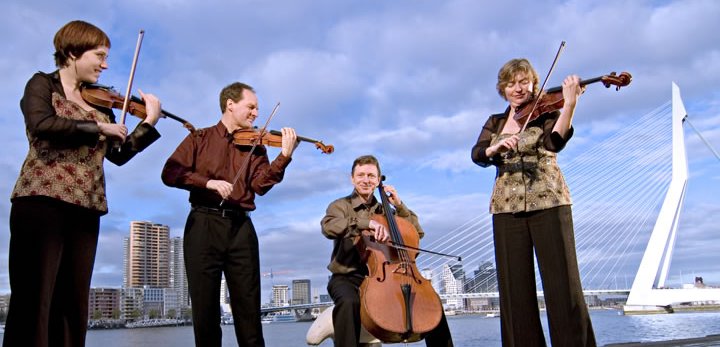 Vanessa Vanessa Lann emails – Today is the world premiere of my string quartet, Landscape of a Soul’s Remembering. In this work there are six separate locations on the stage where the musicians will stand or sit throughout the performance, changing to new positions between each of the four movements. At each spot there is specific music to be played, consisting of recognizable, repeated patterns that the players will interpret in turn – on their respective instruments – during each movement. As these patterns emerge again and again in new contexts, played on different instruments by different performers, they will each be heard in a new light.
Vanessa Vanessa Lann emails – Today is the world premiere of my string quartet, Landscape of a Soul’s Remembering. In this work there are six separate locations on the stage where the musicians will stand or sit throughout the performance, changing to new positions between each of the four movements. At each spot there is specific music to be played, consisting of recognizable, repeated patterns that the players will interpret in turn – on their respective instruments – during each movement. As these patterns emerge again and again in new contexts, played on different instruments by different performers, they will each be heard in a new light.
Rather than this being a string quartet where the discussion exists in real time between the players, this is a study of the discussion, or realization, that takes place in one human soul – between the present, the future and one’s understanding of Memory.
The premiere of Landscape of a Soul’s Remembering is being given by the Doelen String Quartet (photo above), in the Eduard Flipsezaal, Concertgebouw De Doelen, Rotterdam on Sunday, March 18, 2007, 8:30 pm. The concert also includes the first performance of a work by Giel Vleggaar, and John Adams’ John’s Book of Alleged Dances.

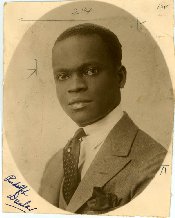 Rudolph Dunbar (right), who died in 1988, was the first black musician to conduct the Berlin and London Philharmonic Orchestras, he wrote a best selling book on the clarinet, was an acclaimed jazz musician, and a contemporary composer. Yet today he isn’t even mentioned in the standard music reference books, and is only remembered as a black activist – why? Read about the mystery of Rudolph Dunbar over
Rudolph Dunbar (right), who died in 1988, was the first black musician to conduct the Berlin and London Philharmonic Orchestras, he wrote a best selling book on the clarinet, was an acclaimed jazz musician, and a contemporary composer. Yet today he isn’t even mentioned in the standard music reference books, and is only remembered as a black activist – why? Read about the mystery of Rudolph Dunbar over 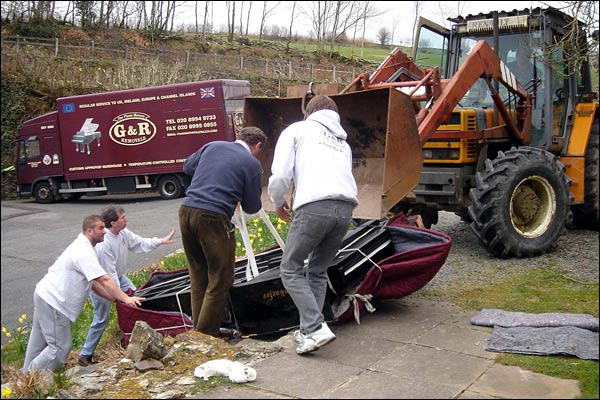
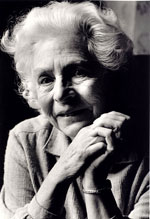 Why a String Quartet? What is it that has given it its exalted reputation and mystique? Why have so many composers regarded it as the perfect medium of expression, though it is perhaps the most demanding to write for? And why do distinguished artists often prefer to work as a team in a first class quartet rather than make bigger money as, say, orchestral leaders? Music means different things to different people: but for those to who music is an intellectual art, a balanced and reasoned statement of ideas, an impassioned argument, an intense but disciplined expression of emotion – the string quartet is perhaps the most satisfying medium of all.
Why a String Quartet? What is it that has given it its exalted reputation and mystique? Why have so many composers regarded it as the perfect medium of expression, though it is perhaps the most demanding to write for? And why do distinguished artists often prefer to work as a team in a first class quartet rather than make bigger money as, say, orchestral leaders? Music means different things to different people: but for those to who music is an intellectual art, a balanced and reasoned statement of ideas, an impassioned argument, an intense but disciplined expression of emotion – the string quartet is perhaps the most satisfying medium of all.
 The big news in London this weekend is a £1 million (almost $2m) tie-up between English National Opera and Sony PlayStation to put games consoles into the foyer of the hallowed London Coliseum. This is an opera house renown for its
The big news in London this weekend is a £1 million (almost $2m) tie-up between English National Opera and Sony PlayStation to put games consoles into the foyer of the hallowed London Coliseum. This is an opera house renown for its 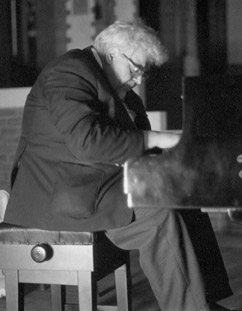 John Ogdon was born, seventy years ago, on January 27th 1937. The following words were written by him in 1981. “Here then…are some of the harsh facts behind the words ‘severe mental illness’ and ‘serious nervous breakdown’ which the press has been using about me so often lately. Not that I am complaining about the press! – I was thrilled by the sympathetic and wide spread media interest that came my way both before and after my return to the … concert stage”.
John Ogdon was born, seventy years ago, on January 27th 1937. The following words were written by him in 1981. “Here then…are some of the harsh facts behind the words ‘severe mental illness’ and ‘serious nervous breakdown’ which the press has been using about me so often lately. Not that I am complaining about the press! – I was thrilled by the sympathetic and wide spread media interest that came my way both before and after my return to the … concert stage”. 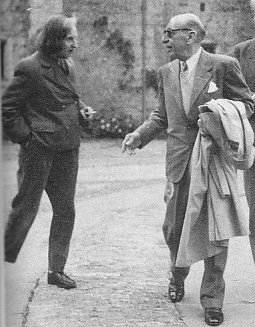 Five minutes before Elisabeth Lutyens appeared live on BBC Radio 4’s ‘Start the Week’ in 1979 she threatened to denounce Russell Harty as a ‘homosexual interviewer’ if he mentioned the phrase ‘lady composer’; thankfully Harty avoided using the words when the programme was on air. Lutyens was a larger than life personality who pioneered serial techniques in her unfairly neglected music. She was also well connected as my photo shows. For the full story, and a recommendation of a new CD of her music, click on
Five minutes before Elisabeth Lutyens appeared live on BBC Radio 4’s ‘Start the Week’ in 1979 she threatened to denounce Russell Harty as a ‘homosexual interviewer’ if he mentioned the phrase ‘lady composer’; thankfully Harty avoided using the words when the programme was on air. Lutyens was a larger than life personality who pioneered serial techniques in her unfairly neglected music. She was also well connected as my photo shows. For the full story, and a recommendation of a new CD of her music, click on 